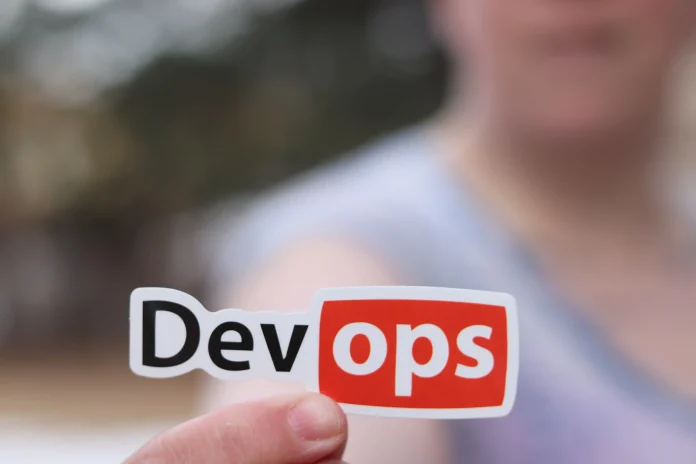DevOps is a demanding job role. It speeds-up a company’s process of software creation, without making development and operation teams exhaustive. Meanwhile, customer value is delivered as expected.
But how does DevOps make software development efficient? What are the skills of a DevOps engineer? And who can start a career in DevOps?
The author has explored the above queries and more, to help IT personnel jump into a DevOps career.
What does a DevOps engineer do?
A DevOps engineer automates and manages the software creation process (aka SDLC).
They have a unique set of skills that lets them perform DevOps specific tasks– integrating new code changes, running tests, and managing the deployment process.
Does a DevOps engineer need to have experience in software development?
Though the job role of a DevOps engineer requires to have sound knowledge of software development best practices (also called agile principles), it does not require them to write code for development.
The job role specifically deals with coordinating with development and operations; and using DevOps toolchain such as Jenkins and GitLab. DevOps coordination exists in the form of tasks such as– integrating code changes, automating test cases on these changes, and providing the right resources to the development team.
Why does a DevOps engineer need to learn programming?
Programming, specifically Object Oriented Programming–OOP is a must skill for DevOps job roles. These languages offer great features such as code reusability, data protection, and scalability, making it simpler for DevOps experts to organize code.
The OOP related tasks include:
- In CI/CD tools (such as Jenkins), OOP principles can be used to create pipeline code that is reusable. This pipeline code is made to accomplish the basic DevOps task: automation of the software development life cycle.
- DevOps engineers are also tasked to design and create code for infrastructure, which are the necessary resources developers require for software creation. By using OOP languages, DevOps create modular, reusable, and scalable infrastructure code, which is now used by developers, omitting the need to acquire infrastructure manually.
- Additionally, Jenkins functionality can be improved via modifying any plug-ins using OOP (such as Java). This helps to create customized code for tasks such as integrations, automation workflows, or extensions to Jenkins that align with specific project requirements.
- Moreover, automated test cases are written using OOP languages, which makes it easy to test new code integrations.
Jumping into DevOps: Where to Start?
DevOps is not a first career option. It’s a senior job role that is earned by working as IT professionals in the application development field.
If you are a beginner who’s aspiring a DevOps position, starting with a profession closest to DevOps is a good option. This way you will also attain financial security as you move forward toward your goal.
Based on your current skills and interest, there are three ways you can start your career in DevOps.
1. Start with Quality Assurance (QA)
Quality assurance and software testing is an essential skill for DevOps engineers. The profession is also a smart way towards your goal as quality testing is easier than the hectic development and it’s also in demand country-wide.
By gradually taking sound career steps one can successfully reach a DevOps job role in just a few years.These steps include: shifting from manual testing to automation testing, learning OOP for development in QA, becoming a QA in DevOps, and finally a DevOps engineer.
Related: From software QA to DevOps- the smartest way to earn more!
2. Start with Software Development
Software developers already carry the necessary programming skills required in the DevOps role. With a good hands-on in OOP and database management they can easily learn to create scripts for automation testing.
An entry level software developer can choose to shift to an agile working environment and attain experience on code integrations and automation testing. After reaching mid-level, they have the necessary knowledge and experience regarding scrum environment and thus make ideal candidates for learning DevOps toolkit.
3. Start with Data Science
Shifting from data science to DevOps is a completely valid move to make. DevOps in data science uses the same agile philosophy as in software development to develop and deploy data science applications.
If one has interest in the data field, then moving to a DevOps role like such is a profitable step to make. Follow the below guideline to attain the six key skills of a DevOps engineer.
How to Start with the Skills of a DevOps Engineer?
Start with the simplest.
- If you lack expertise in coding then start your learning with training on any one object oriented programming languages: C++, Java or Python.
- After learning OOP concepts, it’s time to learn scripting languages, which includes Pearl, Bash and Python. These are used to automate tasks.
- Now, acquaint yourself of the database management concepts and the famous data language SQL.
- As you learn to program, make a parallel arrangement of learning to use operating systems: Linux and Windows. Make yourself aware of the command line interface and configuration management of these OSs.
- At this point, you’ve reached the midway to DevOps expertise. Most of the work is done. The programming knowledge you’ve gained will help you use the following DevOps tool chain:
- CI/CD tools (Jenkins, GitLab),
- Configuration automation tools (Puppet, Chef, Ansible),
- Container run time (Docker, rkt, cri-o),
- Container orchestration tools (Kubernetics),
- Finally, the last step is to attain knowledge of any one cloud platform: AWS, Azure etc. This is important as DevOps always uses cloud services to buy infrastructure and useful tools.
Related: Cloud computing and DevOps: How do they work together?
You will benefit from learning DevOps early in your career. If you’re a QA, software developer, or a data scientist, now is the time to seek DevOps skills. Use this guide to take small steps that pave your way to the most glorifying role of the IT industry.




